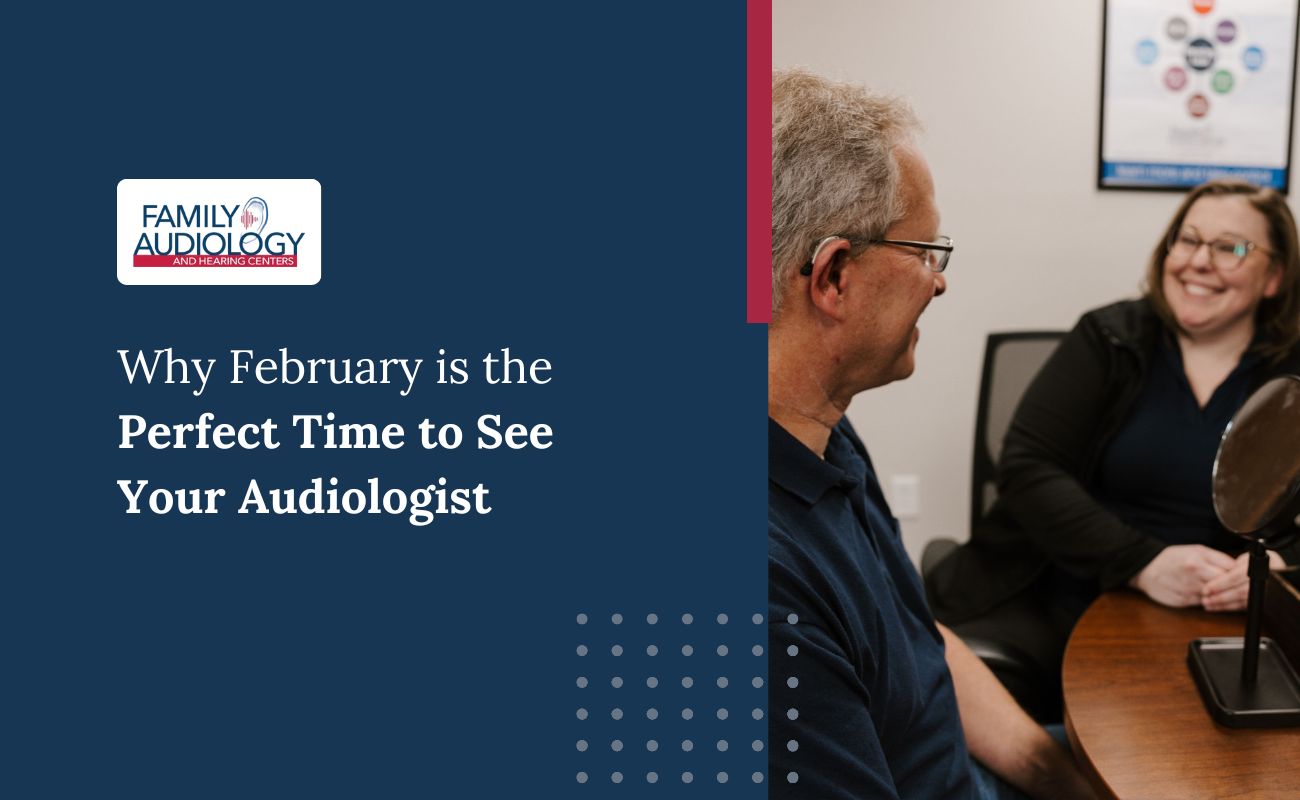Ask An Audiologist: What is Daily Life Like with Hearing Loss?



Hearing loss is an experience that alters not just how we engage with our environment, but also the way we connect with others. Often perceived merely as a decrease in the ability to hear sounds, it extends much deeper, influencing daily communication, social interactions, and overall quality of life. The degree of hearing loss varies from person to person, with symptoms ranging from difficulty in grasping high-pitched noises to the inability to hear conversations at normal volumes.
Our day-to-day life relies on auditory cues more than we might realize, and adapting to hearing loss requires significant adjustments. The impact of hearing loss is extensive, affecting not only the individual but also their family and friends. It's important to recognize the signs early and consult with an audiologist, as timely intervention can mean a world of difference in managing the condition effectively.
Understanding Hearing Loss
We often take for granted the ease of navigating social situations when our hearing is intact. With hearing loss, routine exchanges can become challenging, potentially leading to misunderstandings and feelings of isolation. It's not just about asking people to repeat themselves or cranking up the TV volume; it's about the constant mental fatigue and heightened effort required to decipher sounds, sometimes leading to withdrawal from social events and public interaction. When we discuss hearing loss, we're referring to a condition that can affect our ability to hear and interact with the world around us.
Types of Hearing Loss
There are three primary types of hearing loss that we identify:
- Conductive Hearing Loss: This type of loss occurs when sound is blocked from reaching the inner ear. Common causes can be as simple as earwax buildup.
- Sensorineural Hearing Loss: In this case, the issue lies within the inner ear or the neural pathways to the brain. Aging and noise exposure often contribute to this type of hearing loss.
- Mixed Hearing Loss: As the name suggests, this is a combination of conductive and sensorineural hearing loss.
Causes of Hearing Impairment
Hearing impairment can stem from a variety of causes:
- Environmental Factors: Extended exposure to loud noises can damage the inner ear.
- Biological Causes: Aging, infections, or hereditary conditions may also lead to loss of hearing.
Living with Hearing Loss
In navigating daily life with hearing loss, we focus on effective communication strategies, the use of assistive devices, and adopting coping mechanisms to manage challenges.
Communication Strategies
- Visual Cues: We pay close attention to lip-reading and facial expressions, using them to fill in gaps in the conversation.
- Clear Speech: We encourage speakers to articulate clearly and face us directly to enhance understanding.
- Quiet Environments: We prefer conversations in settings with minimal background noise to reduce auditory strain.
Assistive Devices
- Hearing Aids: These devices amplify sound, making it easier for us to hear conversations and environmental noises.
- FM Systems: By wearing a receiver and having the speaker use a microphone, FM systems can directly send audio signals to our hearing aids, improving clarity.
Coping Mechanisms
- Rest Periods: We take breaks in quiet spaces to relieve the mental fatigue caused by constant concentration on listening.
- Support Networks: We seek emotional support from friends, family, or support groups familiar with the challenges of hearing loss.
Impact on Daily Activities
Hearing loss notably reshapes the way we engage in our daily activities, often creating challenges that can affect social inclusion, job performance, and relaxation during leisure pursuits.
Social Interactions
We find that social gatherings can become daunting. Difficulty in deciphering speech over background noise means that we can miss out on conversations, jokes, and emotional subtleties. This can inadvertently lead to withdrawal from social settings, as trying to keep up with discussions becomes an exhausting endeavor.
- Challenges:some text
- Strained communication
- Misinterpretations
- Feelings of isolation
Professional Life
In the workplace, our capacity to communicate effectively can be impaired by hearing loss. Meetings and discussions can become puzzling if we struggle to follow the conversation, potentially impacting job performance and prospects.
- Professional impacts:some text
- Misunderstood instructions
- Reduced participation
- Difficulty in team collaborations
Leisure and Entertainment
Our enjoyment of leisure and entertainment can be diminished. Activities like watching a movie, attending a concert, or dining out pose difficulties as voices and sounds merge with background noise, making it hard to enjoy these experiences to their fullest.
- Leisure challenges:some text
- Need for assistive devices (e.g., hearing aids)
- Limited enjoyment in noisy environments
- Reduced frequency of engaging in public entertainment activities
Hearing Health Every Day
Hearing loss is an invisible condition and yet it profoundly shapes our interactions, relationships, and overall well-being. As highlighted, its effects ripple through various aspects of life, from communication hurdles to social isolation. The diverse spectrum of symptoms underscores the complexity of this condition, making early detection and intervention imperative.
Understanding the pivotal role auditory cues play in our daily lives underscores the significance of addressing hearing loss promptly. By acknowledging the signs and seeking professional guidance, individuals can embark on a journey towards improved communication and enhanced quality of life. Moreover, the ripple effects extend beyond the individual, impacting familial and social dynamics.
In essence, the journey of navigating hearing loss demands resilience, adaptation, and support. It calls for a collaborative effort involving healthcare professionals, family members, and the affected individual themselves. Through proactive measures and a supportive environment, individuals can mitigate the challenges posed by hearing loss and foster a sense of connectedness and inclusion. Ultimately, the journey towards managing hearing loss is not just about regaining auditory function but reclaiming the richness of life's experiences.
Discover the Latest Articles
Stay informed with our informative articles.

Why February is the Perfect Time to See Your Audiologist
.jpg)
What Your Audiologist Checks During a Comprehensive Hearing Evaluation

How AI Technology Is Transforming Hearing Aid Performance
Contact your local Hearing Aid Specialists
At Family Audiology and Hearing Centers, we strive to be there for all your family’s hearing needs. Because of this, we have 17 convenient locations in Ohio and Wisconsin for you to visit. See which location is best for you and schedule an appointment today.

